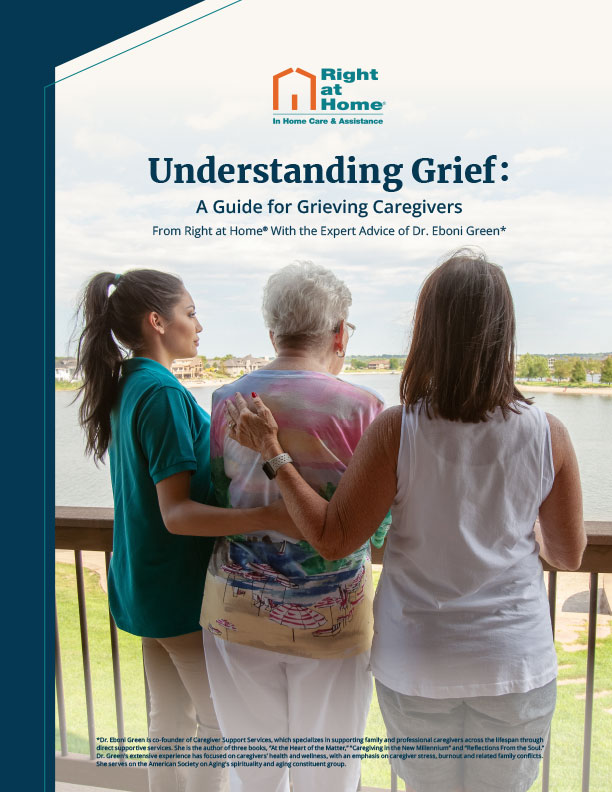

Understanding Grief: A Guide for Grieving Caregivers
Grief associated with the loss or the expected loss of a loved one can be overwhelming. Intense and often unexpected emotions can feel unmanageable and unending. As a caregiver, you may have experienced anticipatory grief as you adjusted to the changes in your loved one’s health over time. Now that your loved one has passed and you have time to focus on your own well-being, you may be wondering how to navigate these emotions. Know that you most likely will not follow the same pattern as others when dealing with your loss, so do not be burdened by unrealistic expectations on how to address your grief. The following are three common myths about coping with grief:
- Myth #1: The goal of grief work is to find closure.
- Myth #2: There are five stages of grief.
- Myth #3: Grief is a condition that should be treated.
Self-care during bereavement is critical in managing your grief. And your overall wellbeing. These strategies can help you take care of yourself:
Relevant Services
Grief increases the risk of death from heart disease and suicide.




